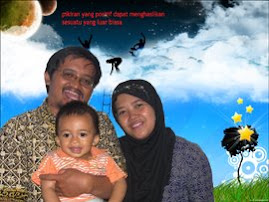
Your 1-3 month old is more alert and aware of her surroundings than she was as a newborn. She already recognizes her parents' voices and faces, and she might be ready to respond to them with smiles. Your baby is ready to be an active participant in play.
What will my baby learn?
Your baby will carefully watch your facial expressions and listen to your voice. By listening to you, she is learning the importance of speech before she understands or repeats any words herself. She'll also learn during this period that she has the ability to vocalize, too; make sure to answer her coos and gurgles with your own sounds, and she will be more willing to express herself.
Now that your baby's hands are open (and she's discovered them), she'll begin to use them to learn about the world. She'll play with her fingers, bring her hands to her mouth, and try to swing at things within view. In this way, she is learning hand-eye coordination. When lying down, she'll stretch out her arms and legs - soon she will learn to grasp and kick!
You will learn to recognize when your baby is alert and ready to learn and play and when she'd rather be left alone. Sometimes your baby will need to protect herself from overstimulation by "shutting down" for a bit.
What should I do?
Remember that play is not just "play" to babies and children. Play is how they learn, so be enthusiastic when your baby shows interest in playing. Take every opportunity to interact with her - provided she's in the mood. Don't overstimulate her with too many activities at once, and let her tell you when she's bored.
Your baby will enjoy listening to music, the sounds her toys make, and your singing - and she won't care whether or not you're any good. Her eyesight is improving, so she'll be fascinated by brightly colored pictures in books and the mobile above her crib. And she won't be able to take her eyes off herself if she has an unbreakable crib mirror.
As your baby's hands open, offer her a rattle to hold, and watch her search for the source of the rattle's sounds. Give her safe objects of different textures, shapes, sizes, colors, and weights to hold. Dangle objects above your baby and let her swat at them. To get her hands moving, clap them together. Move her legs like a bicycle with your hands. These body games will help her learn to control her movements.
Once your baby can hold her head up, introduce these classic games, or make up your own:
Elevator: Lie on your back and lift your baby up over you. Say, "I'm going to kiss you!" while you lower her down and give her a kiss.
Bouncing rides: Place your baby on your lap and hold her under her arms. Move forward until you're at the edge of the seat, then raise and lower your heels to give her a gentle bounce. Reciting rhymes while you do this will add to the fun and encourage language development.
Learning milestones
Here are some milestones to look for during this period. By the end of three months, most babies:
• Smile at the sound of a parent's voice
• Smile at others
• Reach for, grasp, and hold objects
• Support their heads well
• Make babbling sounds
• Bring objects to their mouths
Babies develop at different rates, and there is a wide range of normal development. It is usually not a cause for concern when a baby misses a developmental milestone, but talk to your pediatrician if your baby seems behind.
Minggu, 07 September 2008
Learning, Play and Your 1-3 Month Old
Langganan:
Posting Komentar (Atom)





Tidak ada komentar:
Posting Komentar